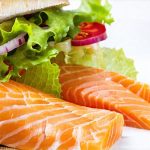Indigestion after a multi-course meal is a surprisingly common experience, even for individuals who don’t typically struggle with digestive issues. It’s not necessarily a sign of illness, but rather an indication that the digestive system has been significantly challenged by a larger workload and greater complexity than usual. We often associate lavish meals with celebration and enjoyment, yet the very characteristics that make them pleasurable – richness, variety, abundance – can simultaneously contribute to discomfort. Understanding why this happens requires delving into the mechanics of digestion and how they are impacted by increased volume, diverse food types, and altered eating pace.
The digestive system is remarkably adaptable, capable of processing a wide range of foods under normal circumstances. However, it operates most efficiently when presented with consistent demands. A multi-course meal disrupts this consistency, introducing waves of different nutrients requiring distinct enzymatic processes and levels of gastric acid secretion. This places a considerable strain on the entire digestive tract, from the mouth to the intestines, potentially leading to symptoms like bloating, heartburn, gas, nausea, or general discomfort. It’s also important to recognize that individual tolerances vary greatly; what one person can comfortably digest might cause issues for another. Individuals experiencing frequent indigestion may benefit from [digestive problems that can be detected with a simple scan].
The Cumulative Effect of Digestive Strain
The core issue with multi-course meals isn’t necessarily any single food item, but the cumulative effect on the digestive system. Each course adds to an already increasing workload. Consider a typical progression: an appetizer often rich in fats or complex carbohydrates, followed by a soup that can increase gastric fluid volume, then a heavier main course (often protein and fat intensive), and finally, dessert which is typically high in sugar. This sequence demands continuous adjustments from the digestive organs. – The stomach needs to repeatedly expand and contract. – Pancreatic enzymes are secreted in varying quantities depending on food composition. – Intestinal motility must adapt to different digestion rates for each course. This constant shifting can overwhelm the system’s capacity, leading to incomplete digestion and subsequent discomfort.
Furthermore, the timing between courses often doesn’t allow sufficient time for previous foods to move further along the digestive tract before more are introduced. This creates a backlog, increasing pressure within the stomach and intestines. The sensation of fullness isn’t always an accurate indicator of how much has actually been digested, but rather how much is physically present in the system. A feeling of being overly full can exacerbate indigestion symptoms by putting additional strain on the lower esophageal sphincter, potentially causing acid reflux. It’s a classic case where more isn’t necessarily better – even when it tastes delicious. Those who experience discomfort while eating may also suffer from [cramping during evening meals with no fiber].
The composition of each course also plays a significant role. Combining foods with vastly different digestion rates – for example, a fatty appetizer followed by quickly-digested simple carbohydrates – can create imbalances within the digestive process. Fat slows down gastric emptying, meaning that food remains in the stomach longer, potentially delaying the digestion of subsequent courses. This can disrupt the natural rhythm and contribute to bloating and discomfort.
The Role of Gastric Emptying & Motility
Gastric emptying refers to the rate at which food moves from the stomach into the small intestine. It’s a carefully regulated process influenced by factors such as food composition, volume, and individual physiology. As mentioned previously, fats significantly slow down gastric emptying, while carbohydrates generally empty more quickly. A multi-course meal with varying macronutrient profiles can therefore create unpredictable fluctuations in this rate. This can lead to incomplete digestion and increased fermentation within the stomach, producing gas and bloating. Reduced motility – slower movement of food through the digestive tract – is a common contributor to indigestion and can be exacerbated by large meals.
The vagus nerve plays a crucial role in regulating gastric emptying and intestinal motility. It’s essentially the communication pathway between the brain and the gut. Stress, anxiety, or even simply overeating can disrupt vagal nerve function, leading to slower digestion and increased susceptibility to indigestion. When the digestive system is under stress from multiple courses, it may not be able to effectively coordinate these processes, resulting in symptoms like nausea, bloating, and abdominal pain. It’s a delicate balance, and multi-course meals often tip the scales towards disruption. For those who struggle with consistent digestion issues, [digestive instability after skipping multiple meals] can further exacerbate problems.
Addressing motility issues generally involves lifestyle modifications such as regular exercise, adequate hydration, and incorporating fiber-rich foods into your diet. However, for acute indigestion after a large meal, gentle movement (like a short walk) can sometimes aid in digestion, while avoiding lying down immediately after eating may help prevent reflux. It’s vital to remember that these are general recommendations and shouldn’t replace personalized medical advice.
The Impact of Gastric Acid & Enzymes
Effective digestion relies on the production of gastric acid and digestive enzymes. Gastric acid helps break down food, particularly proteins, while enzymes like amylase (for carbohydrates), lipase (for fats), and proteases (for proteins) further dismantle nutrients for absorption. A multi-course meal can overwhelm the stomach’s capacity to produce sufficient quantities of these essential components. The constant influx of new foods requires continuous acid secretion, potentially leading to hyperacidity in some individuals and heartburn or acid reflux.
Furthermore, if the stomach is already partially full from previous courses, it may not have enough space for optimal mixing and churning, hindering the enzymatic breakdown of food. This can result in undigested food reaching the small intestine, causing fermentation and gas production. Enzyme deficiencies – though less common – can also exacerbate these issues, making it harder to digest specific components of a multi-course meal. A proper assessment via [digestive issues that can be confirmed with microbiome testing] could help identify underlying problems.
Managing acid reflux often involves dietary adjustments like avoiding trigger foods (spicy foods, caffeine, alcohol) and adopting smaller portion sizes. Over-the-counter antacids can provide temporary relief, but long-term reliance on them isn’t recommended without medical guidance. Promoting efficient digestion through mindful eating practices – chewing food thoroughly and eating slowly – can also help reduce the burden on the stomach.
Mindful Eating & Portion Control as Preventative Measures
One of the most effective ways to mitigate indigestion from multi-course meals is to practice mindful eating and exercise portion control. This means paying attention to hunger cues, savoring each bite, and avoiding distractions during mealtime. Chewing food thoroughly breaks it down mechanically, making it easier for enzymes to do their job, and also sends signals to the brain that you are full, potentially preventing overeating.
Portion sizes are often underestimated in multi-course settings; we tend to view each course as a separate entity rather than contributing to an overall intake. Reducing portion sizes at each stage – even slightly – can significantly lessen the burden on the digestive system. Consider ordering smaller appetizers, sharing desserts, or opting for lighter main courses.
Additionally, pacing yourself between courses is crucial. Allowing sufficient time for previous foods to begin digesting before introducing new ones gives the stomach a chance to “catch up” and prevents overload. Drinking water between courses can also aid digestion, but avoid excessive fluids that might dilute gastric juices. Ultimately, enjoying a multi-course meal doesn’t have to equate to digestive discomfort; it requires a conscious approach focused on moderation, mindful consumption, and respecting the limits of your body’s natural processes. Paying attention to these issues may help you avoid [bloating after meals with excessive sodium content]. Furthermore, be aware that [loose stools from morning meals with too much oil] can impact digestion throughout the day. Finally, even seemingly innocuous habits like [cramping from standing while eating multiple meals] can contribute to overall digestive distress.


















